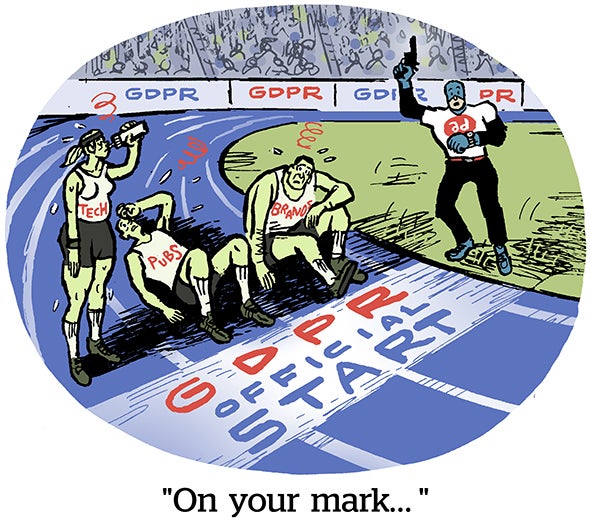Here’s today’s AdExchanger.com news round-up… Want it by email? Sign up here.
We Need Change ASAPI
Ad tech execs who are frustrated or outright opposed to the Chrome Privacy Sandbox have few examples they can point to for how an alternative might work.
So it’s useful that the Microsoft Edge team just published the specs for its Ad Selection API (ASAPI), which is based on Chrome’s Protected Audience API (PAAPI). [h/t @Paul_Bannister]
One difference is that ASAPI allows multi-size and multi-slot auctions, which PAAPI doesn’t offer. Edge’s version also allows for dynamic creative insertion, whereas creative must be preloaded when using the Chrome sandbox.
Another key distinction is that Edge only uses Trusted Execution Environments to manage auctions. (TEEs are servers, exchanges or other companies that execute ad auctions). PAAPI supports TEEs, but only Google and Amazon – for now, at least. Otherwise, Chrome’s on-device software decides the auction.
This consolidates power within Google, plus “on-device” can have sinister associations. Safari’s Intelligent Tracking Prevention, for example, is on-device software and it’s like a homing missile with ad tech as its target.
On-device processing also results in higher latency. Chrome maintains there won’t be any lag once the system scales, but it’s still a potential sticking point for publishers before they start testing.
Them’s The Rules
The clock has run out for Alphabet, Amazon, Apple, ByteDance, Meta and Microsoft to comply with the EU’s Digital Markets Act, The Verge reports.
The DMA, which went into effect on March 6, classifies these six companies as “gatekeepers,” as in platforms with high revenue and active user thresholds whose core services include app stores, search engines, messaging services and/or operating systems.
Now begins the regulatory scrutiny and potential penalties over noncompliance – or so-called “malicious compliance.” It’s possible to obey the letter and not the intent of the law, and enforcers are on the lookout.
Meanwhile, platform responses to the DMA are all over the map.
Each is forced to make substantive changes to its business practices, but it’s unclear if these changes will further damage the consumer experience for European internet users.
Google, for instance, must re-collect explicit consent to reconnect its many properties under one tracking umbrella. That’s going to be painful from a UX perspective.
Also, the third-party app stores that are now allowed on Apple devices won’t work outside of Europe – not to mention that Apple previously planned to block progressive web apps using the DMA as its excuse.
Fines for violations under the DMA are potentially astronomical: Up to 10% of global revenue for first-time offenders.
Help!
The ad industry is in a state of upheaval.
On top of new privacy laws in the US and around the world, there have been tectonic changes to targeting and measurement, such as Apple’s ATT and Chrome’s Privacy Sandbox. Oh, and the macroeconomic headwinds keep blowing while so-called efficiency improvements have led to widespread layoffs.
It’s not an easy landscape to navigate.
But the doom and gloom has given birth to education and information resource companies, like U of Digital, and to networking platforms whose aim is to help marketing, advertising and tech professionals deal with disruption.
One such startup is OhHello, which connects ad industry mentors with others soliciting advice or help in their careers. It was founded by programmatic vet Jeremy Bloom.
“Junior, mid-level, senior and executive-level people all had this mix of dispassion and vulnerability, saying ‘What the hell’s happening in our space?’” Bloom tells Ad Age. “Many people don’t have the same built-in network that some of us have. I wanted to be able to break down barriers.”
But Wait, There’s More!
Layoff angst looms over Meta employees as they face tough performance reviews and reorgs. [Business Insider]
Google is releasing massive search quality enhancements this month. [Search Engine Land]
Reddit looks to build its ad sales team and ad offerings ahead of its IPO. [Digiday] Also, Reddit’s IPO success hinges on an unruly user base that opposes monetizing with ads, even on its beloved Reddit. [Bloomberg]
Max cracks down on password sharing, much like Netflix, Hulu and Disney+. [Mashable]
How AppLovin turned its business around – and what its ascent means for mobile gaming. [Mobile Dev Memo]
You’re Hired!
Tinuiti announces new leadership appointments, including Gisela Germano as EVP and managing director for enterprise and Simon Poulton as EVP of innovation. [release]
Vevo hires Matt Burgess as VP of ad tech. [NextTV]











